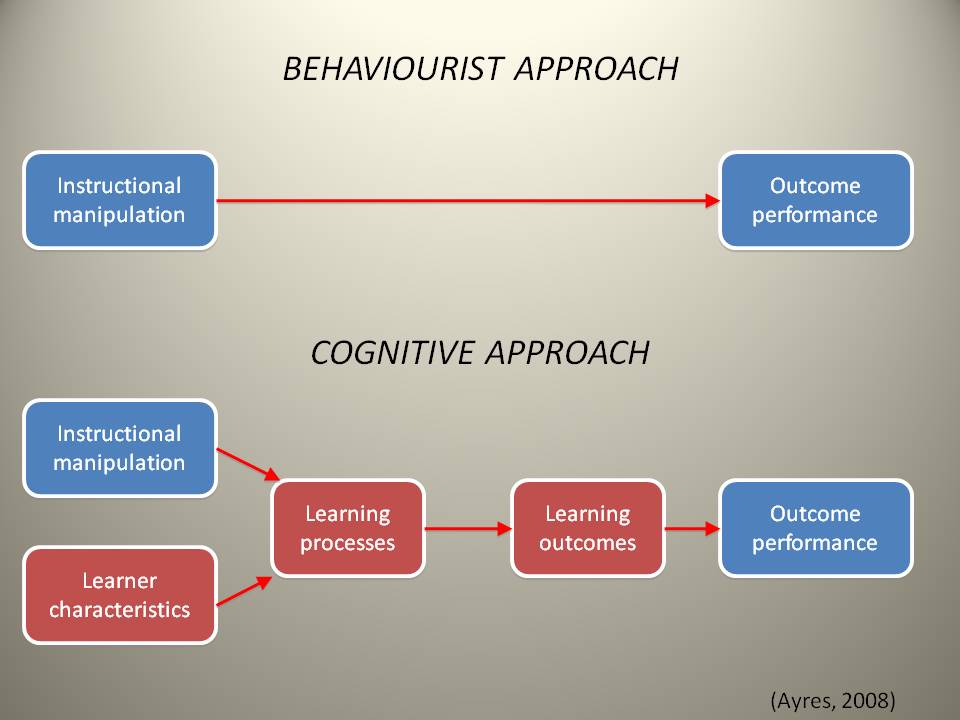Cognitivism
Cognitivism reintroduced the mind and learner. Cognitivists are interested in the analysis and promotion of certain thinking processes (e.g., critical thinking, problem solving, decision making, and creative thinking). They believe that these variables are more important in describing student learning than are discrete behavioral outcomes. Perceptions of events, rather than the events themselves, are thought to ultimately determine the behavior of the student. Therefore, one cannot understand a child's reaction to a situation without knowing his or her interpretation of that situation Williams, R (1999).
In this style of teaching the student constructs their learning based on what they know and how it is associated. The student has self awareness and motivations and beliefs direct their learning. Social interaction of the students impacts their cognitive development and the knowledge and expertise they acquire is context-dependent. Van Bergen, P (2010)
Classroom activities
This page contains suggested classroom management skills and activities utilising the Cognitivist perspective.
Further Information
Cognitivism - view here
An Examination of Cognitivism - view here
Behaviourism, cognitivism, constructivism part2 - view here
Musings of an Educator blog - view here
Cognitivist Lesson Plan - view here
